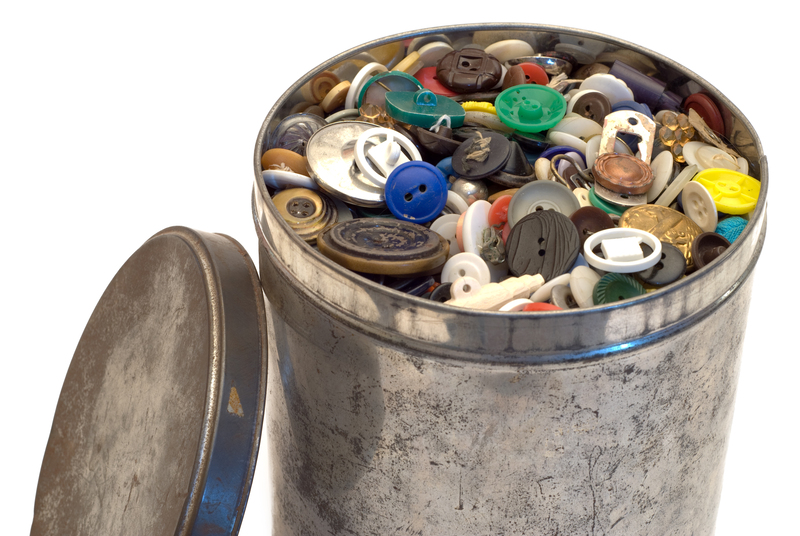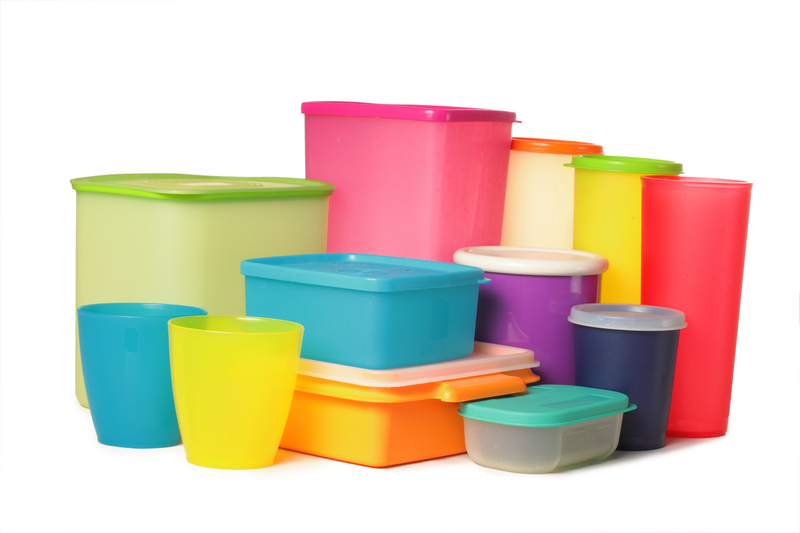Sustainable Living: Reduce Your Plastic Waste
In today's rapidly changing world, sustainable living has become more than just a trend--it's a necessity. Reducing your plastic waste is one of the most effective and actionable ways to contribute to a healthier planet. From swapping out single-use items to rethinking your shopping habits, there are countless strategies to minimize your environmental impact. In this comprehensive guide, we'll explore various methods to help you lead a more sustainable lifestyle by tackling plastic pollution head-on.
Understanding the Importance of Reducing Plastic Waste
Plastic has revolutionized modern living, but its convenience comes at a severe environmental cost. Every year, the world produces over 300 million tons of plastic, with a significant portion ending up in landfills, oceans, and even the air we breathe. Unlike organic materials, most plastics take hundreds--or even thousands--of years to decompose. As a result, microplastics have infiltrated ecosystems, threatening wildlife and human health alike. Reducing your plastic waste is a crucial step toward sustainable living and environmental stewardship.
Why Focus on Plastic Reduction?
- Environmental Preservation: Less plastic waste means reduced pollution in oceans, rivers, and landscapes, protecting habitats for countless species.
- Climate Change Mitigation: Plastic production is energy-intensive and contributes to greenhouse gas emissions.
- Health Benefits: Cutting back on plastic reduces your exposure to harmful chemicals like BPA and phthalates.
- Economic Impact: Reducing plastic waste lowers cleanup costs and stimulates eco-friendly innovation.

Top Strategies for Reducing Plastic Waste at Home
1. Swap Single-Use for Reusable Items
The easiest way to reduce your plastic waste is by replacing disposable products with durable alternatives. Consider the following swaps:
- Reusable shopping bags: Invest in sturdy cloth or recycled-material bags for your groceries.
- Stainless steel water bottles: Avoid single-use plastic bottles by carrying your own refillable bottle.
- Glass or steel food containers: Ditch plastic wrap and storage bags for longer-lasting storage solutions.
- Beeswax wraps: Replace sandwich bags and cling film with reusable beeswax wraps.
Every small change adds up! By swapping out just one or two items, you can significantly decrease your household's plastic consumption over time.
2. Be Mindful While Shopping
Your buying habits have a huge impact on plastic waste generation. Here's how to shop more sustainably:
- Buy in bulk to reduce packaging per item.
- Choose products with minimal or recyclable packaging.
- Support brands that use organic, compostable, or recycled packaging material.
Tip: Visit local farmer's markets, which often use less packaging than supermarkets, or bring your own containers when shopping.
3. Say No to Microplastics
Microplastics are tiny plastic particles commonly found in cosmetics, personal care products, and even clothes. To reduce your plastic footprint, watch out for:
- Scrubs and exfoliants: Avoid those containing "polyethylene" or "polypropylene" beads.
- Glitter: Many conventional glitters are made from plastic; opt for biodegradable versions.
- Synthetic fabrics: Wash clothes made of polyester, nylon or acrylic in laundry bags that trap microfibers, or choose natural fibers instead.
4. Compost Instead of Using Plastic Trash Bags
Did you know that organic waste accounts for a significant portion of household garbage? By composting food scraps and organic matter, you can reduce your need for plastic trash bags and contribute to soil enrichment. Invest in a compost bin or start a worm farm--nature will happily take care of your leftovers!
Reducing Plastic Waste in Your Daily Routine
5. Sustainable Personal Care
Personal hygiene products are often packaged in single-use plastics. Make your routine more eco-friendly with these tips:
- Switch to bar soap and shampoo bars instead of bottled versions.
- Try refillable deodorant or toothpaste tablets.
- Choose bamboo toothbrushes over plastic ones.
- Opt for metal razors instead of disposable plastic versions.
6. Conscious Cleaning
Many cleaning products come in plastic bottles and use non-biodegradable ingredients. For greener cleaning:
- Make your own cleaning solutions using vinegar, baking soda, and essential oils.
- Buy concentrated cleaners that come in minimal packaging or glass bottles.
- Use reusable cloths and sponges instead of disposable wipes.
7. Smart Takeout Choices
Takeout food is a leading source of plastic waste. Next time you order food:
- Request no plastic cutlery, straws, or napkins.
- Bring your own containers or cups for food and drinks when possible.
- Support restaurants that use compostable or paper-based packaging.
Reduce Plastic Waste in the Community
Organize or Join Local Cleanup Initiatives
Taking collective action amplifies your impact on reducing plastic waste. Organize or participate in neighborhood cleanups, river sweeps, or beach cleanups. Not only does this improve the local environment, but it also educates and inspires others.
Educate and Influence Others
One of the best ways to foster change is by raising awareness. Share your knowledge about plastic waste reduction at schools, workplaces, and online platforms. The ripple effect can lead to more people embracing sustainable living practices.
Advocate for Change
Policy changes are essential for long-term solutions. Lend your voice to campaigns supporting bans on single-use plastics, improved recycling systems, and extended producer responsibility (EPR) policies.
Recycling: Not the Only Solution, But Still Important
Many people believe that recycling alone can solve plastic pollution. While recycling is essential, it is not a cure-all. The global recycling rate for plastics is still low, and not all types of plastics are recyclable. Therefore, the best approach always starts with reducing, reusing, and then recycling.
- Know your local recycling guidelines. Some plastics are recyclable in certain areas while others are not.
- Clean containers before recycling to avoid contamination.
- Don't wish-cycle: Placing non-recyclable plastics in the recycling bin does more harm than good.
Creative Ways to Repurpose and Reuse Plastic
Before sending plastic off to the landfill or recycling bin, get creative! Here are some ideas to upcycle and reuse plastic items you already own:
- Turn plastic bottles into planters, storage containers, or bird feeders.
- Reuse jars and containers for pantry storage or crafts.
- Collect durable bags and use them for shopping or organizing.
- Transform old containers into travel kits or first aid boxes.
With a bit of imagination, you can lengthen the life of many plastic products while reducing your overall waste.
The Benefits of Living with Less Plastic
Embracing a lifestyle that reduces plastic waste has both immediate and long-term advantages. Here's how it pays off:
- Healthier Home: fewer plastics at home mean less exposure to toxic chemicals.
- Cleaner Planet: every piece of plastic avoided is one less choking hazard for wildlife or pollutant in the environment.
- Cost Savings: buying reusable products often saves money over time.
- Community Impact: Sustainable habits inspire your friends and family to make better choices too.
Emotional and Social Benefits
Living sustainably and minimizing your plastic waste can foster a sense of purpose and community. Knowing you are contributing to a solution, rather than adding to a problem, can be deeply rewarding.
Overcoming Barriers to Sustainable Living and Plastic Waste Reduction
Transitioning to a low-plastic or zero-waste lifestyle isn't without challenges. Here are some common barriers and strategies to overcome them:
- Cost: While some reusable items cost more up front, they usually save money long-term. Start small and build your sustainable toolkit gradually.
- Convenience: Prepackaged foods and single-use plastics are convenient, but planning ahead--like carrying reusable bags or containers--makes it easier to avoid them.
- Availability: If you don't have access to sustainable stores, find small ways to make a difference--reuse what you have, avoid unnecessary purchases, and recycle properly.
- Social Support: Engage with like-minded individuals online or in your community. Sharing your journey can motivate others and provide accountability.
Remember: every step counts. Sustainable living is a journey, not a competition. Celebrate your successes and learn from setbacks!

Conclusion: Start Your Sustainable Journey Today
Reducing your plastic waste is a fundamental cornerstone of sustainable living and a critical way to preserve the planet for future generations. By embracing simple swaps, making thoughtful purchases, and advocating for broader change, you can contribute to a cleaner, healthier world. Start today by choosing one or more tips from this article and begin your journey towards a more sustainable lifestyle.
Together, we can create a future where plastic pollution is a thing of the past and sustainable living is the new normal.